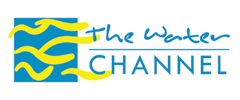Bulgaria - Water, Waste and Sanitation in Rural Areas
Developing a model for sustainable water and waste management for rural areas
13.09.2004 | WECF Project
| Countries: | Bulgaria |
| Donors: | Ministry of Foreign Affairs, Development Cooperation, TMF programme, The Netherlands |
| Partners: | Earth Forever Foundation, Institute of Ecological Modernization, IRC Netherlands, WASTE |
| Issues: | Chemicals & Health, Water & Sanitation, Gender & Rights |
| Duration: | 02/2005 - 07/2007 |

Project summary
This project is taking place in the village of Topoli, in the municipality of Varna, North Eastern Bulgaria. Topoli is a medium sized, semi-urban village 12 kilometres away from Varna with about 3,000 inhabitants and 1,100 households. The project is also taking place in the Stara Zagora municipaly, in two neighbouring villages-Sulitsa and the Stara Zagora Spa.
Sulitsa and the Stara Zagora Spa are small villages with 300 and 380 inhabitants respectively. Most of the citizens are pensioners. The Stara Zagora Spa was a thriving tourist resort until 1989, with a sanatorium, recreational centres and summerhouses. Many were closed down the buildings were deserted and are now in various stages of decay. However, tourism is now picking up again; facilities are being renovated or rebuilt from scratch.
The project is financed by the MATRA programme of the Netherlands’ Ministry of Foreign Affairs.

In Topoli village, overflow from sceptic reservoirs of neighbours living uphill, flood the gardens of downhill neighbours.
The water supply situation
All houses in the three villages are connected to a central water supply system with adequate water. In each village the water quality is suitable for human consumption, even though some people, especially in Topoli think otherwise. The water tests show that the water is of excellent quality in Topoli and Stara Zagora Spa. Sulitsa has nitrates levels just below the maximum concentration level. Reports say that water bills in all villages sometimes remain unpaid. In Topoli, such households are reportedly disconnected; in Sulitsa and the Spa the water company start a court case if outstanding bills exceed a certain amount.
Sanitation is the main problem - seepage leaks into streets
In Topoli and the Stara Zagora Spa almost all houses have an indoor flush toilet. The majority of the households in Sulitsa have an outdoor pit latrine. In Topoli, about half of all households are connected to the central sewage system, part of the wastewater treatment plant in Varna. Half of the households have septic pits. These cause enormous problems, such as soil saturation, problems and/or high costs in emptying them, dampness in houses, foul smells and even seepage into the street.

Stara Zagora Spa village: many sceptic reservoirs overflow into the street, creating bad odours and attracting flies.
There is no central sewage system in Sulitsa. Most septic pits (or soak-aways) let grey or black water infiltrate the soil. Some households occasionally hire a cistern truck to empty their pit. In the Stara Zagora Spa there is a semi-legal central sewage system connecting larger buildings like recreational facilities, sanatoria and some private houses to a central sewage system. This untreated sewage enters the river untreated downstream of the village. Most private houses have their own septic pit. In the Spa –and to some extent in Sulitsa- the septic pits are being flooded and washed out by rain and thaw run-off causing annoyance as well as health risks.
Poor management of storm water
In Sulitsa and the Stara Zagora Spa storm water run-off is considered a major problem at times of heavy rain showers or melt water. Due to the hilly topography and the absence of a proper storm water drainage system, the runoff causes damages flooding streets, gardens and sometimes also houses (in particular the subterranean rooms). Sulitsa especially shows signs of heavy erosion including damaged asphalt and deep gullies.
The overall goal of the project is to encourage the Bulgarian local authorities to develop principles for multi-stakeholder and democratic strategic planning in the area of rural wastewater treatment. This will contribute to making and implementing better decisions for a sustainable development of water and waste management and provide environmental protection for the population and the environment.

Village Stara Zagora Spa: A mineral-water spa, from a natural hot water spring already used by the Romans, provides drinking water of uncertain quality.
Project activities and goals
- Problem identification and assessment of local knowledge
- Training of key stakeholders
- Developing and implementing pilot projects
- Dissemination and exchange of knowledge
- Formulation of strategies for sustainable water and waste management
The project aimed at improving the wastewater management in the three project villages.
- Water was tested in the three villages during the first six months of the project
- WECF provided experts from academic institutions in order to produce the designs of the systems (ecosan, rainwater harvesting system)
- WECF provided the local partners with all the necessary educational materials.

Pupils of the school in Stara Zagora cooperating in the project.

WECF Director Sascha Gabizon meets the mayor of Stara Zagora Spa.
Project implementation
WECF, together with Earth Forever Foundation, undertook the following project steps in Sulitsa:
- Building of one public ecosan toilet and one soil filter to treat the waste water in the cultural club of the village
- Building of two ecosan toilets in households
WECF, together with Earth Forever Foundation undertook the following project steps in the Stara Zagora Spa. The decisions for an appropriate pilot project are still on going, and they will be taken soon.

New ecosan toilet constructed in the cultural club in Sulitsa.
WECF, together with the Institute for Ecological Modernisation undertook the following project steps in Topoli
- Implementing the Master Compost Programme for 25 households
- Implementation of rainwater harvesting and efficient water systems in
- the village school

Building a composter in Topoli. Villagers participate in the Master Composter Programme, held in September 2006. This is one of the pilots implemented in the village.
Essential links
Links relevant to the project
- Ecosanres
- Ecosan Organisation
- Gesellschaft für Technische Zusammenarbeit
- Technische Universität Hamburg-Harburg
Contact
- sascha.gabizon(at)wecf.org
- margriet.samwel(at)wecf.org
- bistra(at)wecf.org
Related News
Meet the Winners of the Gender Just Climate Solutions Award at COP24
On the 70th anniversary of the Universal Declaration of Human Rights, we awarded Gender Just Climate Solutions Winners at the climate negotiations in Katowice, Poland
11.12.2018
Invitation: Gender Just Climate Solutions Award 2018
10 December, COP24 Katowice
04.12.2018
Getting to the Future We Want
4-7 November, Brussels: European Environmental Bureau’s (EEB) Annual Conference
12.11.2018
GoodFood4All
WECF and partners all over Europe start GoodFood4All Campaign
06.11.2018
#Ruralwomen: join our Women2030 campaign!
15.10.2018
Lack of trustworth information is a barrier to chemicals & product related decision-making
8-9 October, Geneva: short report of the meeting of the Aarhus Convention’s task force on public participation in decision-making
12.10.2018
Congratulations Sascha!
Named thirty-third most influential sustainability fighter in the Netherlands
08.10.2018
The Netherlands in the next gear - Adopt an SDG Live!
WECF and Building Change organised the event “The Netherlands in the next gear – Adopt an SDG live” on 27 September in the Koorenhuis in The Hague
02.10.2018
Human Biomonitoring for Europe
Vienna, 26 September: stakeholder forum
28.09.2018











































